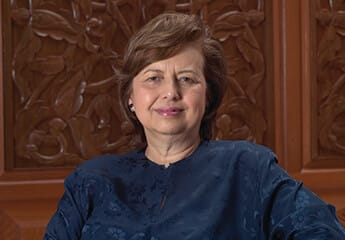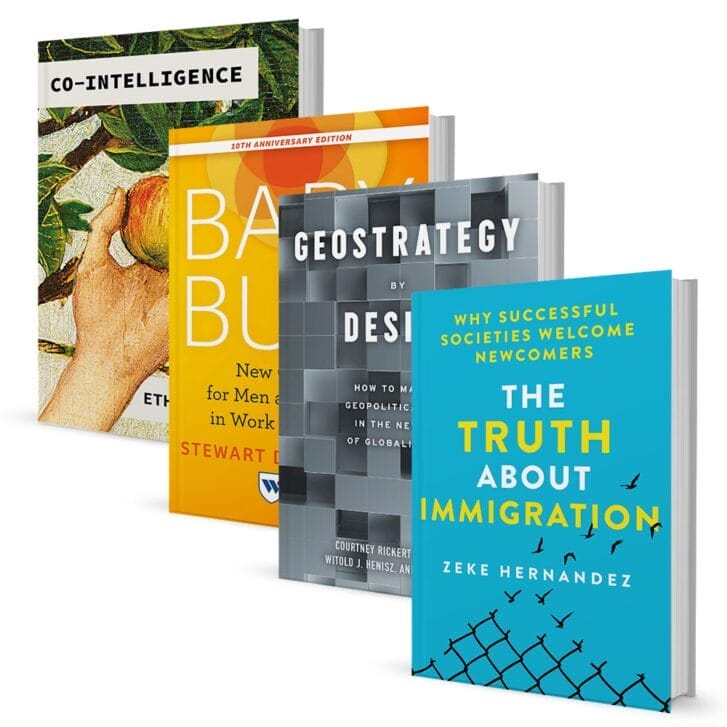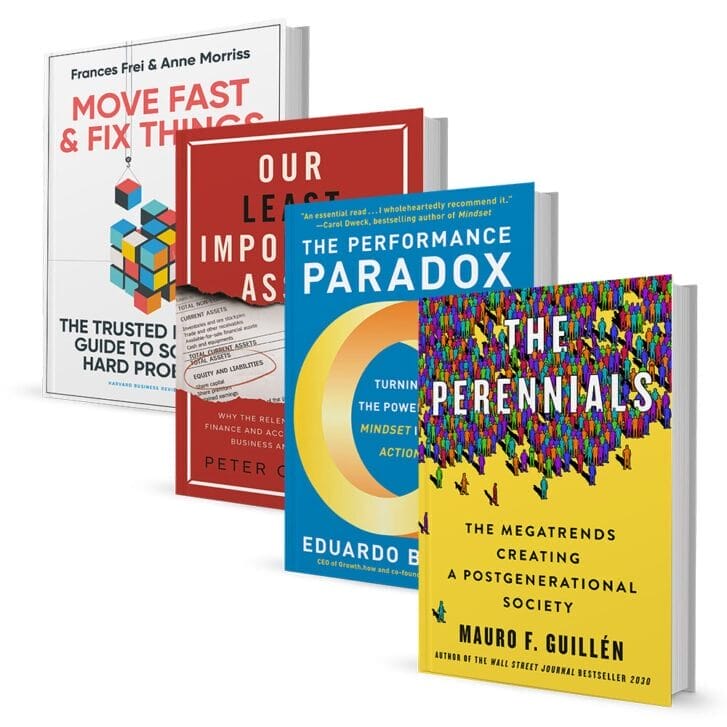She had accomplished so much by the time Wharton Magazine published its 125 Influential People and Ideas issue in 2006. Dr. Zeti Akhtar Aziz, G’74, GR’78, had steered the Malaysian economy through the Asian financial crisis in 1998 soon after becoming interim governor of Malaysia’s central bank. Her steady leadership earned her the full-time governorship of Bank Negara Malaysia in 2000—making her the first female in all of Asia to become head of a central bank. Dr. Zeti then set her nation’s economy on a sustainable, more inclusive course and in the process became an economic leader across Asia and the Islamic world. Since, she has earned accolades as a top bank governor—if not the top one—and continued to be a pioneer. Malaysia weathered the global financial crisis of 2009 with minimal damage, for instance, and when Dr. Zeti raised interest rates in 2010, India and China followed.
WHARTON MAGAZINE: When in your career did you feel like you were breaking down barriers, if at all?
ZETI AKHTAR AZIZ: Surprisingly, I was never confronted by gender-related challenges during my entire career. I always had every opportunity to develop and advance in my career based on my capability and performance.
Perhaps the challenge was more from deviating from the orthodox and conventional approaches to policies for managing the economy and financial system, particularly during a crisis or when undertaking initiatives that involve breaking new ground. It is always tough for a central bank from an emerging economy to deviate from the conventional. You really have to be sure that as an organization you are standing on solid ground with great clarity on the outcomes that you want to achieve and that you have the capabilities to do what it takes to pursue such outcomes.
More exciting is, however, undertaking efforts that are groundbreaking. This has been achieved in the area of regional financial collaboration with other central banks in the Asian region and in the area of Islamic finance with central banks in other parts of the world. More recently in 2009, we were amongst the first in the world to operationalize the settlement of trade with China in renminbi. This will facilitate greater trade and investment activities with China.
WM: What does being a leader mean to you?
ZETI: The great leaders are those who can contribute towards creating a better future. They are the leaders who are able to envision such a future and be focused on not just the immediate and short term but on the medium- and longer-term outcomes—and then to have the ability to pursue such goals with unrelentingly tenacity. Articulating the vision with great clarity and generating the energy in others, whether it is a team, or an entire organization, to pursue the aspirations. Leaders are also those who pursue the goals for the collective good and not for their personal gain. Principles and values are therefore important in a leader. Building the organizational capability so it is in a position to deliver is also important. This is so that every part of the organization is aligned to the common purpose of the vision with the capacity and energies to make it happen. This is particularly challenging in these times of rapid change.
WM: Your father [Royal Professor Ungku Aziz Ungku Abdul Hamid] is one of Malaysia’s leading intellectuals. Is that how you got into academia in your early career?
ZETI: My father is a development economist. His early work focused on poverty eradication and rural development. He was also an educationist with more than 20 years heading the main university in Malaysia. I was, however, never really drawn to academia. My first job was as a research economist with a regional organization that was established for central banks in the Asian region, the SEACEN Centre. During my time there, I wrote two volumes on interest rate reform in the Asian region. From the very early stage of my life, my interest was in monetary economies, and soon after graduating school, I knew that I wanted to be a policymaker.
WM: He is also an incredible public figure. Had you felt pressure to live up to or escape his shadow?
ZETI: Both my parents were public figures, at times highly controversial for their ideas and opinions. My mother [Sharifah Azah Mohamed Alsagoff] was a well-known journalist. They have always been a tremendous inspiration to me. They are both individuals that have made a difference in their respective areas. They have also always been there to support me. This has allowed me to have a career and a family. Equally important is the upbringing I received from my parents, which I have valued and for which I am truly grateful.
WM: You are a role model for current Wharton students and young people in finance around the world. What are the important traits of a role model?
ZETI: My own experience has been to observe highly successful individuals from different parts of the world, and in different fields, looking at their traits and strengths. Different traits have been important in different individuals. Among the important traits are having the vision and staying true to the cause. They are also the ones that strive with great passion to excel in what they do. They also have the capacity to be tested to the limit and not be discouraged by setbacks. Having values and high energy levels has also been important. These traits can often be observed in sport persons, musicians and artists. This drive with passion to achieve applies in our fields, too, whether in public policy or in the corporate world.
WM: You have earned many honors and awards over your career. Which are you most proud of?
ZETI: Central banking business is always an unfinished business. We can never sit back and think we have done a job that is well done. There is always something on the horizon that needs to be addressed. The payoffs are when we have been anticipatory and pre-emptive. While it’s great to be recognized, the greatest reward is when we achieve outcomes that contribute to our society and to the world. This encourages us to persevere to make the difference.
Editor’s note: Read more about Wharton women and leadership and access the five other individual Q&As in our cover article, “On, About & For More Leadership.”



























